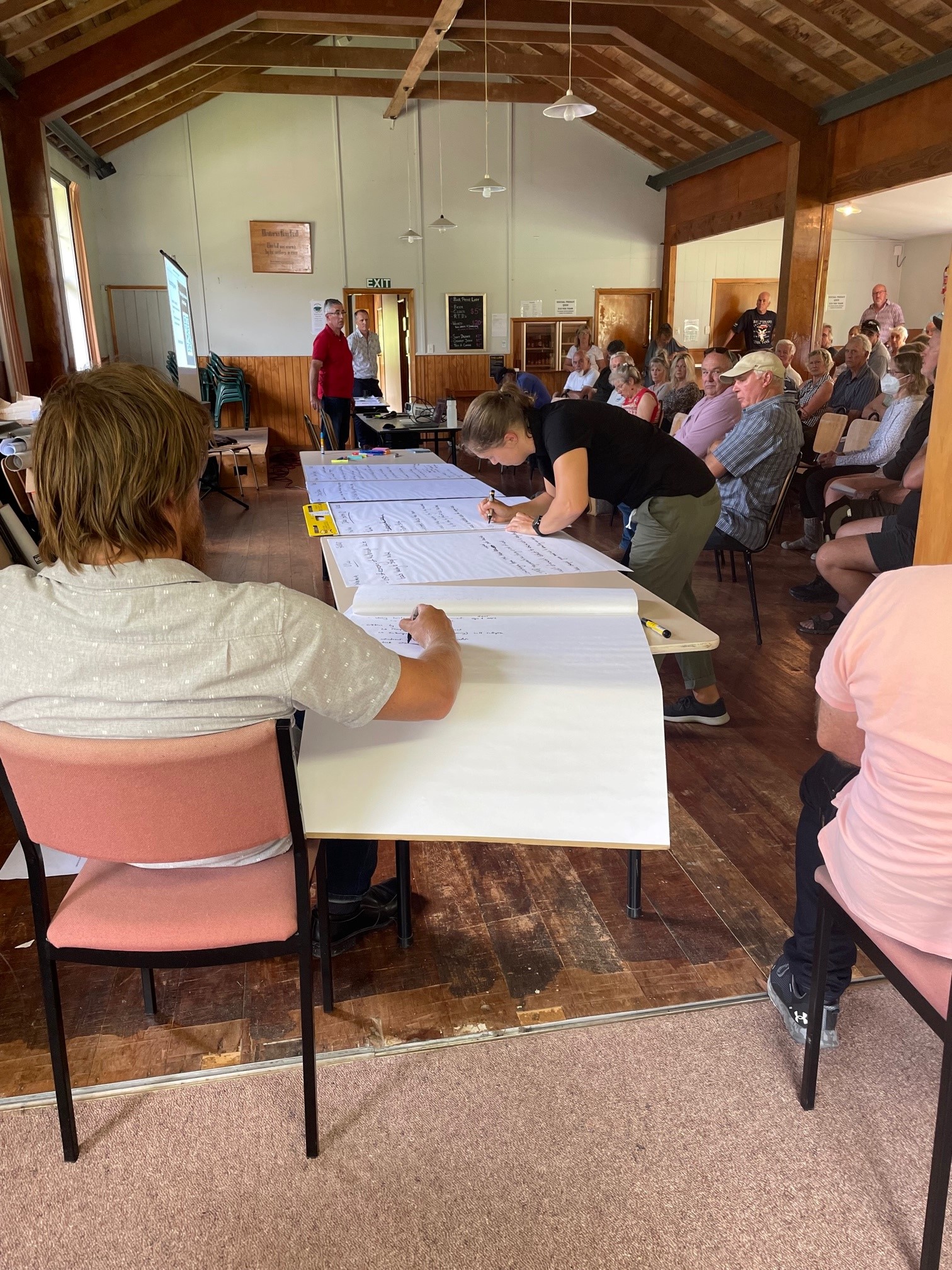Marlborough Recovery Update #20, Friday 10 February 2023
Planting for soil stabilisation
Last year’s rains and floods have left many bare patches in the Sounds which residents may be thinking about re planting to increase soil stabilisation.
Marlborough Sounds ward councillor Ben Minehan, from Weed Solutions Ltd, suggests three fast-growing native species - mānuka, kānuka & pittosporums – which thrive in the Sounds environment and will choke out nasties like gorse and broom.
Summer is not the best time to plant but you can think ahead about for planting from mid to late March onwards.
Mānuka or kahikātoa (Leptospermum scoparium)
Mānuka’s sweet scented flowers provide a vital pollen source for native bees,
flies, moths, beetles and geckos. Ben says mānuka works well for planting large sites.
Seeds are easy to harvest and plants are fast growing with a good tap root. They establish quickly without needing any special care.
Mānuka is considered by many as an essential tool for revegetating bare slopes, creating excellent shelter for other slower-growing natives.
Mānuka is generally not eaten by sheep, cattle and goats and is tolerant of drought, excess water, wind, and frost when mature. Placing fertiliser tablets by the trees at planting will help especially with establishment on steep, exposed clay soil.
Always ensure young trees are watered in their root trainers and planted out with wet roots.
Kānuka (kunzea ericoides)
Kānuka is endemic to New Zealand, and although similar to manuka can be distinguished by its softer leaves as opposed to manuka’s prickly leaves. (mānuka mean, kānuka kind).
Pittosporum
Pittosporum are fast-growing evergreens, hardy in most situations and low maintenance. They thrive in most soils and produce masses of tiny flowers in spring and once flowering is complete,
seed pods follow. These are attractive to native birds who help with propagation.
There are three main varieties of Pittosporum grown in New Zealand:
Kohuhu - Pittosporum Tenuifolium
This is great for hedging, screens and shelter and can grow to 5m tall. It is fast growing and
will thrive in alpine and coastal environments and grow easily from seed and can be propagated from cuttings.
Lemonwood - pittosporum eugenoides
The largest of the three and can grow up to 12m tall. Very useful for fast-growing
shelters requiring height.
Karos - pittosporum ralphii
Can grow up to 6m tall and has larger leaves than kohuhu.
Thanks to Ben Minehan and The Bush Telegraph for the above article
Calendar
Insurance/EQCover Drop-In Day
Wednesday 15 February from 10.00 am to 4.00 pm at the Havelock Town Hall
Hato Hone St John courses
Waitaria Bay - 21 February 9.30 am to 3.00 pm
Portage - 22 February 8.30 am to 4.30 pm
Linkwater - 23 February 9.30 am to 3.00 pm
Courses are filling fast so register now. Numbers are restricted to 20 people for each course so if you’re interested, please contact Charlotte on email recovery@marlborough.govt.nz or phone 027 213 0341.
Marlborough Community Vehicle Trust
Sunday 26 February – last day for the MCVT car to be used. Contact Ian Cameron on ianc.cameron@xtra.co.nz or 03 574 2558.
Thanks to the MCVT and Ian Cameron for making this service available.
Roading update
Works being carried out on recovery roads this week include the clearing of culverts along Kenepuru Road, between Linkwater and Portage. Minor works are also being completed on retaining walls in three locations along Kenepuru Road and slip clearance is being undertaken on Te Mahia Road.
The construction of Noels Bridge on Northbank Road continues and a culvert installation has started on Queen Charlotte Drive, near Moenui Road.
Crew are starting to assemble equipment for the limestone rock revetment on Awatere Valley Road in preparation for these works to start next week.
Both construction closures on Kenepuru Road between Tara Bayand Nikau Cove have nowfinished.
Kenepuru Road and its side roads, including Moetapu Bay Road, remain restricted to residents and emergency services only. They are not suitable for visitors.
Information
To check the status of any local road in Marlborough visit Marlborough District Council’s CDEM Map and click on the road for more information.
To contact the Marlborough Roads Recovery Team email recovery@marlboroughroads.com or phone 0800 213 213 between 8.00 am - 5.00 pm, Monday to Friday.




